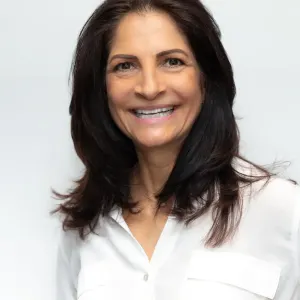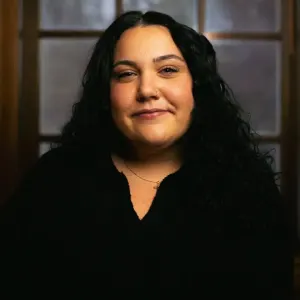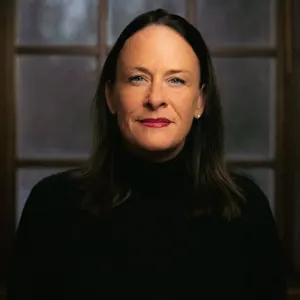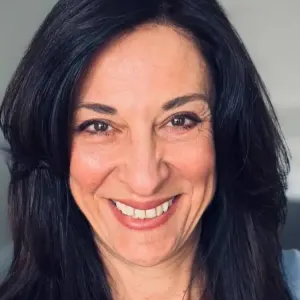








Centres for Health and Healing
Verified Center
This provider's information has been quality-checked by Recovery.com's Research Team for accuracy and completeness, including center verification through appropriate third-party organizations.
Treatment Focus
This center treats substance use disorders and co-occurring mental health conditions. Your treatment plan addresses each condition at once with personalized, compassionate care for comprehensive healing.
Primary Level of Care
Offering intensive care with 24/7 monitoring, residential treatment is typically 30 days and can cover multiple levels of care. Length can range from 14 to 90 days typically.
Treatment Focus
This center treats substance use disorders and co-occurring mental health conditions. Your treatment plan addresses each condition at once with personalized, compassionate care for comprehensive healing.
Primary Level of Care
Offering intensive care with 24/7 monitoring, residential treatment is typically 30 days and can cover multiple levels of care. Length can range from 14 to 90 days typically.
Private Pay
You pay directly for treatment out of pocket. This approach can offer enhanced privacy and flexibility, without involving insurance. Exact costs vary based on program and length of stay. Contact the center for specific details.
Centres for Health and Healing
Centres for Health and Healing
About Centres for Health and Healing
Centres for Health and Healing (CFHH) is a retreat-style, luxury home offering a private indoor swimming pool, outdoor lounge, variety of outdoor seating areas, and a private view of the lake. They take a non-12-Step, individualized approach to treatment. Their services include medical detox, residential treatment, and aftercare. CFHH focuses on mental health, mindfulness, and a combination of evidence-based and holistic therapies. Individual and group counseling give clients special opportunities to share, connect, and bond with their therapist and peers.
Recover In Canadian Countryside
Centres for Health and Healing has a unique lake-side location in Vaughan, Ontario. Their property stretches across 150 acres of Canadian countryside, with lake access, a gated entrance, and seclusion. Their expert staff includes nurses, counselors, interventionists, case managers, and professional chefs. All work together to craft a personalized and effective treatment plan for each client they treat.
Treatment That Reaches The Causes of Addiction
CFHH treats what lies behind addiction–mental health disorders, trauma, personality disorders, and more. This comprehensive focus on mental health allows them to treat addiction at its roots, successfully uprooting it by changing behaviors, thought patterns, and expectations, along with prescribed medications to treat the mental health conditions requiring it. They treat behavioral addictions like gambling, sex addiction, work addiction, and video game addiction. Centres for Health and Healing also prioritizes family involvement, understanding that family support and education are all important aspects of lasting recovery. They offer a family group program every Saturday.
Evidence-Based Care And Peaceful Activities
Centres for Health and Healing is a technology-friendly facility, recognizing the needs of working professionals and those with family. They do request a technology-free first week of treatment, but can be flexible. CFHH’s evidence-based treatments include ketamine treatment and medications (sublocade) for opioid recovery. Their treatment approach combines evidence-based therapies like cognitive behavioral therapy (CBT) and dialectical behavioral therapy (DBT) with holistic and medical modalities like yoga and psychoeducation. CFHH’s treatments blend well with their stunning and therapeutic location, allowing clients to unwind, focus, and heal among friends. Pedal boat on the lake or catch the sunset on their dock, all in complete peace and privacy.

Highlights from the Center
Highlights
These highlights are provided by and paid for by the center.
Certified Professionals
On-site Medical Detox
Tech Friendly
100+ Acre Grounds
Center Overview
Treatment Focus
This center treats substance use disorders and co-occurring mental health conditions. Your treatment plan addresses each condition at once with personalized, compassionate care for comprehensive healing.

Centres for Health and Healing
Pricing and Program Length
Estimated Center Costs
The cost listed here (Private Pay Only: $23,000), is an estimate of program cost. Center price can vary based on program and length of stay. Contact the center for more information. Recovery.com strives for price transparency so you can make an informed decision.




Recovery.com Verified Listing
Recovery.com verified that the name, location, contact information and license to operate for this treatment provider are valid and up-to-date.

Licensed by Ontario
Recovery.com is an independent, third-party mental health resource. Verification does not imply endorsement and does not guarantee the quality of treatment services.
Meet Your Care Team

Holly Stewart
Managing Director

Tina Ruysseveldt
Chief Operations Officer

Chris Doyle
Program Director

Tara Maggiacomo
Psychotherapist

Victoria Conforti
Mental Health Counsellor

Marcus Doyle
Addictions and Mental Health Counsellor

Christina Protomanni
Mental Health Counsellor

Giulia Giatti
Mental Health Counsellor

Sue Chahal
Mental Health Counsellor

Ricky Nip
Addictions and Mental Health Counsellor

Natalia Barillari
Mental Health Counsellor

Olivia Melillo
Addictions and Mental Health Counsellor

Cecile Case
Registered Practical Nurse

Stacey Beaulieu
Personal Support Worker

Mav Singh
Intake Team

Brett Lawson
Intake Coordinator

Robert Hartounian
Chef

Angie Triumbari
Yoga Teacher, Fitness Trainer
Your Care Options
Specializations
Alcohol
Using alcohol as a coping mechanism, or drinking excessively throughout the week, signals an alcohol use disorder.
Detox
Detox fully and safely removes toxic substances from the body, allowing the next steps in treatment to begin with a clean slate.
Drug Addiction
Drug addiction is the excessive and repetitive use of substances, despite harmful consequences to a person's life, health, and relationships.
Executives
Executive treatment programs typically directly support the needs of people who manage businesses and may provide flexible schedules and office space to allow work during treatment.
Family Involvement
Providers involve family in the treatment of their loved one through family therapy, visits, or both–because addiction is a family disease.
Personalized Treatment
The specific needs, histories, and conditions of individual patients receive personalized, highly relevant care throughout their recovery journey.
Prescription Drugs
It's possible to abuse any drug, even prescribed ones. If you crave a medication, or regularly take it more than directed, you may have an addiction.
Who We Treat
Executives
Executive treatment programs typically directly support the needs of people who manage businesses and may provide flexible schedules and office space to allow work during treatment.
Young Adults
Emerging adults ages 18-25 receive treatment catered to the unique challenges of early adulthood, like college, risky behaviors, and vocational struggles.
Midlife Adults
For adults ages 40+, treatment shifts to focus on the unique challenges, blocks, and risk factors of their age group, and unites peers in a similar community.
Pregnant Women
Addiction and mental health treatment meets the clinical and psychological needs of pregnant women, ensuring they receive optimal care in all areas.
Professionals
Busy, high-ranking professionals get the personalized treatment they need with greater accommodations for work, privacy, and outside communication.
Treatment Services
Detox
Detox fully and safely removes toxic substances from the body, allowing the next steps in treatment to begin with a clean slate.
Residential
In a residential rehab program, patients live onsite, with access to daily treatment and 24-hour care. An average stay is 30-90 days.
Approaches
Evidence-Based
A combination of scientifically rooted therapies and treatments make up evidence-based care, defined by their measured and proven results.
Experiential
Expressive tools and therapies help patients process past situations, learn more about themselves, and find healing through action.
Holistic
A non-medicinal, wellness-focused approach that aims to align the mind, body, and spirit for deep and lasting healing.
Personalized Treatment
The specific needs, histories, and conditions of individual patients receive personalized, highly relevant care throughout their recovery journey.
Therapies
1-on-1 Counseling
Patient and therapist meet 1-on-1 to work through difficult emotions and behavioral challenges in a personal, private setting.
Trauma-Specific Therapy
This form of talk therapy addresses any childhood trauma at the root of a patient's current diagnosis.
Mindfulness Therapy
This ancient practice can be mental, emotional, and even spiritual. In meditation, you focus your attention on the present moment without judgement.
Animal Therapy
Animals can inspire trust and self-worth. In this experiential therapy, guided interactions are used to improve social skills and emotion regulation.
Experiential Therapy
With this approach, patients heal by doing. Therapists help patients process difficult emotions to speak, using guided activities like art or dance.
Family Therapy
Family therapy addresses group dynamics within a family system, with a focus on improving communication and interrupting unhealthy relationship patterns.
Medication-Assisted Treatment
Combined with behavioral therapy, prescribed medications can enhance treatment by relieving withdrawal symptoms and focus patients on their recovery.
Motivational Interviewing and Enhancement Therapy (MET)
This approach is based on idea that motivation to change comes from within. Providers use a conversational framework that may help you commit to recovery.
Conditions We Treat
Pornography Addiction
A person with a porn addiction is emotionally dependent on pornography to the point that it interferes with their daily life and relationships.
Personality Disorders
Personality disorders destabilize the way a person thinks, feels, and behaves. If untreated, they can undermine relationships and lead to severe distress.
ADHD, ADD
ADHD is a common mental health condition caused by dopamine imbalance. Common symptoms include inattention, hyperactivitiy, and impulsivity.
Anger
Although anger itself isn't a disorder, it can get out of hand. If this feeling interferes with your relationships and daily functioning, treatment can help.
Anxiety
Anxiety is a common mental health condition that can include excessive worry, panic attacks, physical tension, and increased blood pressure.
Bipolar
This mental health condition is characterized by extreme mood swings between depression, mania, and remission.
Burnout
Burnout entails mental and physical exhaustion, and leads to a severe lack of fulfillment. This condition is often caused by overwork.
Codependency
Codependency is a pattern of emotional dependence and controlling behavior. It's most common among people with addicted loved ones.
Depression
Symptoms of depression may include fatigue, a sense of numbness, and loss of interest in activities. This condition can range from mild to severe.
Substances We Treat
Alcohol
Using alcohol as a coping mechanism, or drinking excessively throughout the week, signals an alcohol use disorder.
Benzodiazepines
Benzodiazepines are prescribed to treat anxiety and sleep issues. They are highly habit forming, and their abuse can cause mood changes and poor judgement.
Chronic Relapse
Consistent relapse occurs repeatedly, after partial recovery from addiction. This condition requires long-term treatment.
Co-Occurring Disorders
A person with multiple mental health diagnoses, such as addiction and depression, has co-occurring disorders also called dual diagnosis.
Cocaine
Cocaine is a stimulant with euphoric effects. Agitation, muscle ticks, psychosis, and heart issues are common symptoms of cocaine abuse.
Drug Addiction
Drug addiction is the excessive and repetitive use of substances, despite harmful consequences to a person's life, health, and relationships.
Heroin
Heroin is a highly addictive and illegal opioid. It can cause insomnia, collapsed veins, heart issues, and additional mental health issues.
Methamphetamine
Methamphetamine, or meth, increases energy, agitation, and paranoia. Long-term use can result in severe physical and mental health issues.
Languages
Aftercare
Care Designed for Your Needs
Personal Amenities
Amenities
Special Considerations
Couples program
Using gentle clinical care, therapists guide patients and their partner through guided sessions to address issues and work towards lasting solutions.
Executive Program
Addiction and mental health treatment for executives typically involves high discretion, greater technology access, and more private, 1-on-1 care.
Activities
Yoga
Yoga is both a physical and spiritual practice. It includes a flow of movement, breathing techniques, and meditation.
Off-Site Activities
Off-Site Amenities
Learn More About the Center
Treating Work Addiction at CFHH
Read how CFHH treats workaholism, and see why this addiction isn’t as harmless as many may think.
FAQs for CFHH
See answers for some of CFHH’s most common questions, including queries about treatment, accommodations, location, and payment.
Retreat-Style Residential Facility
Explore the beautiful accommodations at Centres for Health and Healing, either through their photos or virtual 3D tour.
Testimonials From Past Clients
Discover what CFHH’s alumni have to say about the treatment they received, and why coming to CFHH was the best choice for them.
What people are saying
Treatment
4.1
Accommodations
4.0
Food & Nutrition
3.7
Value
3.9
Pros
- Beautiful Location (9)
- Access to Nature (7)
- Personalized (6)
- Friendly & Competent Staff (6)
Anonymous
Treatment in 2024 • (60 days) • Reviewed 02/24/25
Former Client
•Toronto
WN
Treatment in 2023 • (45 days) • Reviewed 04/20/23
Former Client
•Software engineer
•Toronto
Chris
Treatment in 2024 • (45 days) • Reviewed 03/03/25
Former Client
•Self-employed
G.W.
Treatment in 2023 • (14 days) • Reviewed 12/16/24
Former Client
•Administration
•Burlington
L. A.
Treatment in 2019 • (90 days) • Reviewed 09/28/20
Former Client
•Student
•Ontario, Canada





